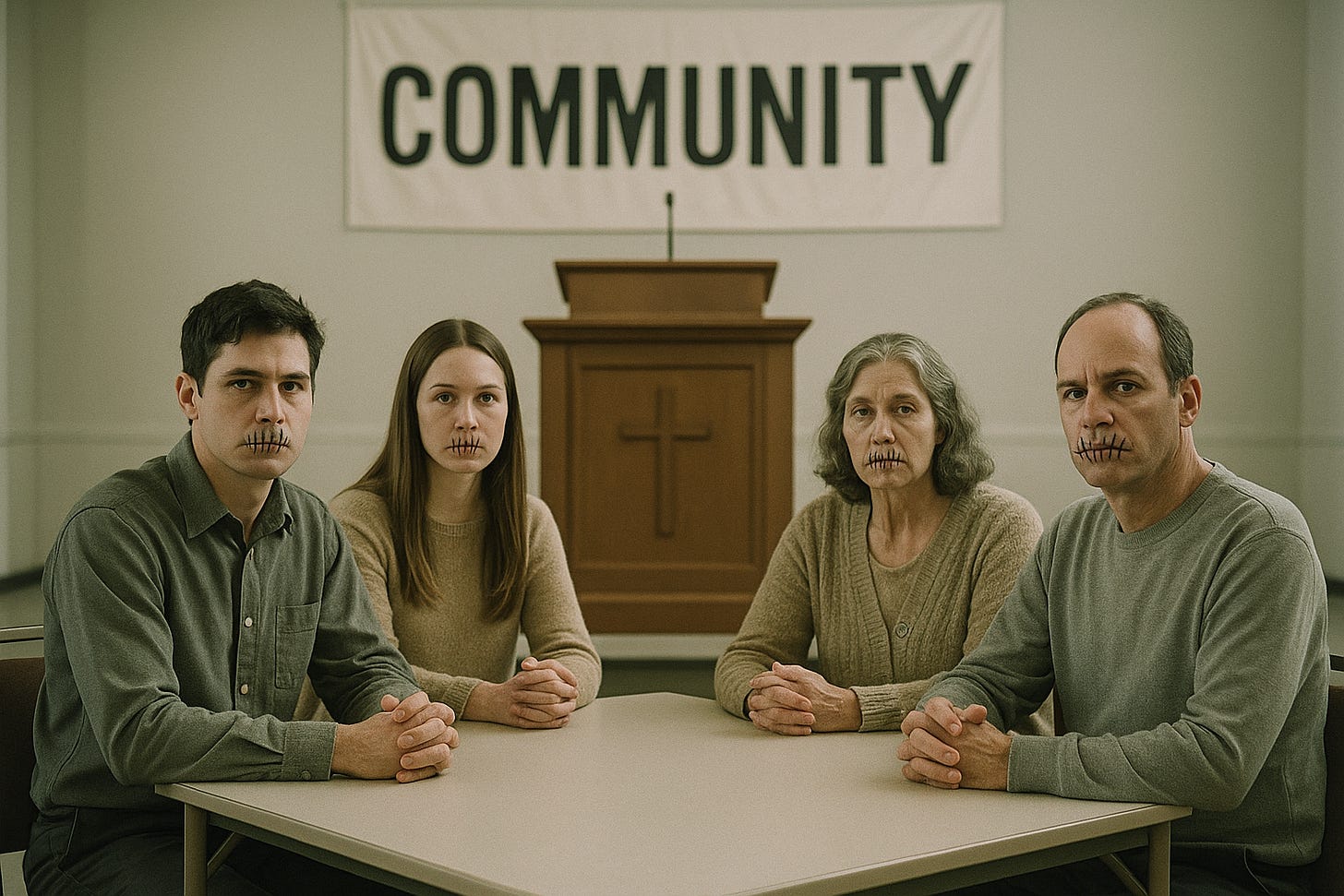Why American Church Small Groups Never Feel Real
and AA Does
AA has a rhythm. The chairs are always set, the coffee’s always on, and the door is open. You can go once a week, once a day, or three times a day if needed. And when you walk in—even if you’ve never been to that meeting before—people know you. Not because they know your name, but because they know the struggle. You don’t need to explain yourself. You’re already part of the wood.
Church small groups couldn’t feel more different. At one church, they’d take the summer off, then relaunch in the fall with big promises about how this time it would be life-changing. But it never was. In the last group I was in, we spent more time deciding when not to meet than actually meeting. And every group had the same forms—fill-in-the-blank questions written by someone who wasn’t even in the room. Question one, question two, question three. In many groups, the moment things started to get real, the leader would shut it down: “We’re running out of time, let’s move on.”
At another church, ECHO, I joined a men’s group. But it wasn’t any better. Everything we discussed was what the pastor wanted to discuss, his agenda, his outline, his control. It was like having a pastor with a clipboard, making sure the conversation stayed on track with his plan. There was never room for what people were actually carrying. The forms dictated what counted as “on topic,” and everything else got brushed aside. Sometimes it felt like he was dangling a carrot in front of the group—promising that if we just followed his plan, we’d get somewhere meaningful. But we never did.
AA couldn’t be more different. At the start, someone might suggest a topic or a reading, but then it goes around the room. No one needs to control the flow, and somehow, no matter how many people are there, it always seems to end on time. Sometimes they’ll say “three minutes per share,” but most of the time it just works. That amazed me—how people could come raw and honest, and still, without rigid rules, it all fit.
Part of it is baked into AA’s DNA. Tradition Two says: “For our group purpose, there is but one ultimate authority—a loving God as He may express Himself in our group conscience. Our leaders are but trusted servants; they do not govern.” And that’s how it feels. The people keeping things moving aren’t running the meeting—they’re serving it. That’s why it works.
And I know it doesn’t have to be this way. Back when I lived in Kuwait, I came across Filipino church groups. They were the opposite—personable, joyful, and honest about their struggles. They carried each other in a way that felt real. That doesn’t happen here in the U.S., at least not that I’ve seen.
And when I try to open up in American church groups—when I actually talk about what’s really going on with me—I just end up feeling out of place. Awkward. Like the idiot who said too much. Maybe some of that’s me, but it’s also the looks you get, the way the air changes, the way everyone’s eager to move on to the next “question.” It makes me hate being there.
What makes it worse is the feeling that I’m the oddball for having real shit going on in my life. And I don’t buy it. I don’t believe the others around the table don’t have their own pain, their own addictions, their own secrets. They just don’t say it. And so the silence keeps winning.
Part of why I’m so critical of the church is that I’ve seen how empty its promises can be. When my dad died by suicide, the church wasn’t there. They should have been. One pastor was, and I thank him from the bottom of my heart. Some of my friends, Christian and non-Christian alike, stood by me too. But many others didn’t. A lot of Christians were quick with judgment, quick with nasty words, as if my dad’s death were some kind of scandal instead of a tragedy.
So yeah, maybe I’m pissed. Maybe I am taking shots at the American church. But it’s because every time they talk about “community” or “walking together,” I think about how hollow those words were when it actually mattered. And every time they start up small groups again, I want to believe it. And every time, it ends the same way: another disappointment.
It feels like when someone says, “I’ll change, it’ll be different this time,” but it never is. Just empty promises recycled into the next round.
I’m done with sterile circles. I’m done with empty promises. And my vulnerability? That can kiss their ass. It’s not worth the emotional energy.


